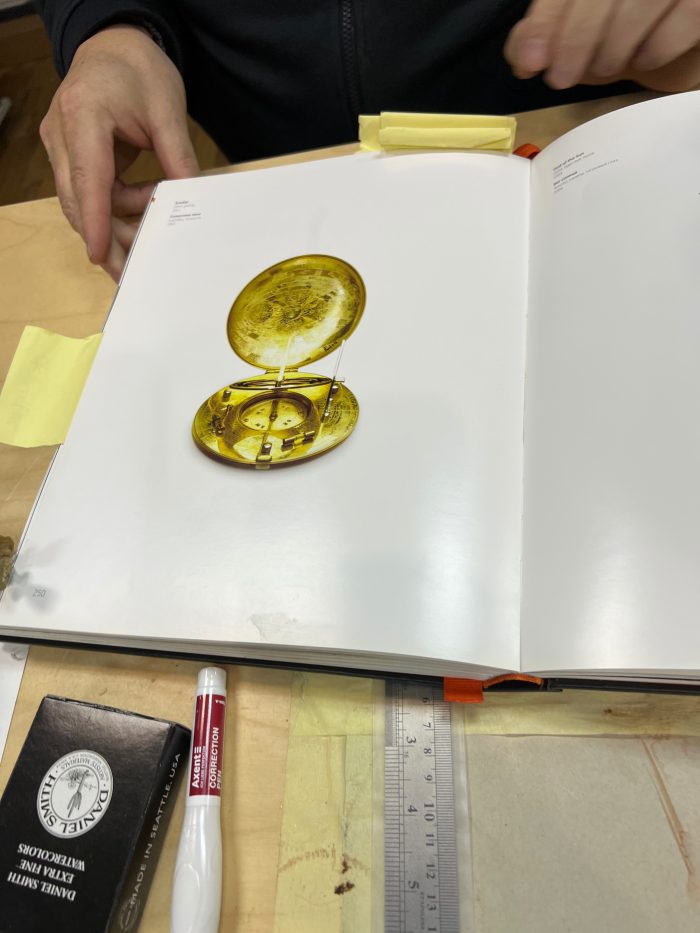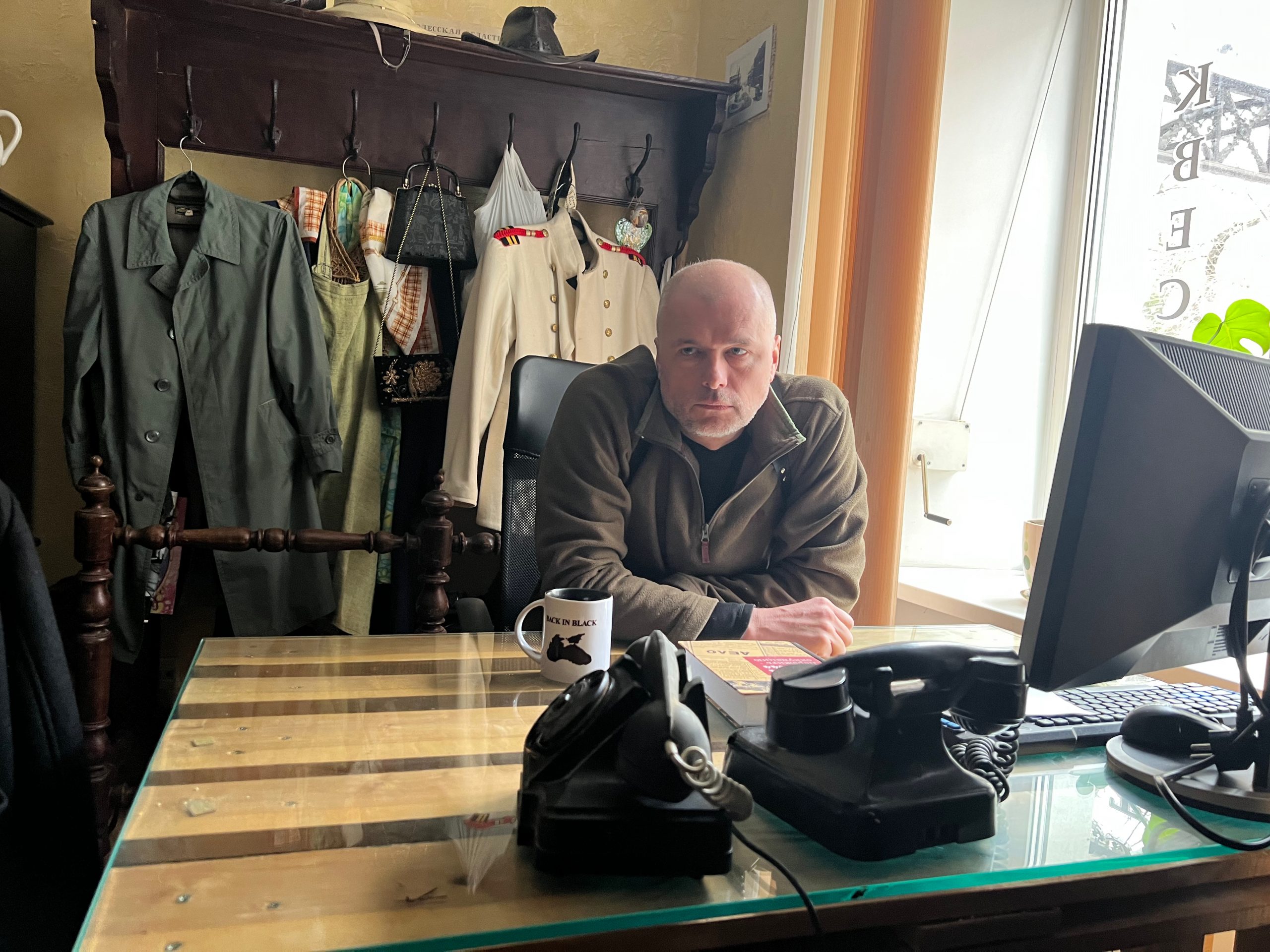“I never thought I’d be capable of so much hate. It frightens me,” said 19-year-old art student, Irina, as she gathered with friends outside a shop in central Odessa on Friday. “I make art. I work in abstract ideas. Now all I can think of are my friends and family hidden in a dark basement and the bombardment that’s coming. I’m not used to thinking this way.”
Shrouded in black gothic garb and make-up near Odessa’s vaunted Opera House, now obscured by a giant military checkpoint, the art students were meeting one last time before returning to help their families prepare for what’s coming.
A few miles over the Black Sea horizon from Odessa, Russian warships and amphibious assault ships were lining up in preparation for an invasion, expected imminently on the port city’s eastern and western flanks.
Amphibious landings have already taken place at Berdyansk in the sea of Azov. With the eastern city of Mariupol surrounded, a solid strip of Russian control now threatens across Ukraine’s entire southern coast, potentially blocking all of its Black Sea supply routes.
Only forty-two miles northwest from Odessa is the republic of Transnistria, a pro-Russian enclave in Moldova which houses seven thousand so-called “Russian peacekeepers”. Russia’s designs on the breakaway republic raise the spectre that Putin may invade a second country. By extending dominion across Ukraine’s black sea coast and absorbing Transnistria, Russia would effectively be resurrecting Novorossiya (New Russia), the Russian empire province which was split up after the 1917 Bolshevik revolution.
For a man newly-obsessed with history, Novorossiya’s reinstatement may be a priority, but the crown jewel in Putin’s imperial ambitions must surely be Odessa. Commissioned by Catherine the Great in the late 1700s and designed by Italian architects, Odessa merges the architectural grandeur of St. Petersburg with the sultry coastal vibe of Havana.
It’s a cinematic city whose ancient baroque facades, colonnaded entrances, and cobblestoned avenues are now obscured by the concrete blocks and sandbags of checkpoints. Given its heritage as the Russian Empire’s second city, Odessa had been considered a pro-Russian city. “Odessans primarily speak Russian”, according to historian Alexander Babich.
“It’s not a typically Ukrainian city but it wasn’t a typical Soviet city during the Soviet Union, nor was it typically Russian during the Russian empire. Its true identity is cosmopolitan European. It’s a multi-ethnic Jewish city, which over the years has been home to Greek, Turkish, Arab, Italian, and German communities.”
Whatever period of history Putin cites as his claim for taking Odessa, the one that matters most to Odessans is the last seven days. “Before they started bombing residential areas, killing children,” Babich told The Currency, “many of us were in a grey zone of being half-Russian, half-Ukrainian. But war has a way of turning everything black and white. Now, I’m a full-blown Ukrainian patriot. I’m a Russian speaker but when the invasion happens, I’ll be fighting against Russians on behalf of the Ukrainian state, from a position at the Pushkin museum”.
This irony might have been lost on Russia’s greatest poet, considered the father of the Russian language, who lived for a while in Odessa, but perhaps not on another national literary figure, Gogol, who wrote much of his darkly comical satire “Dead Souls” in Odessa.
Sculptor Michael Reva is a quintessential Odessan. “I have Greek, Crimean Tartar, Cossack and Russian blood, but what brings it all together is my mother, who is Jewish!” Reva’s avuncular laugh betrays the fear he holds for his beloved city.
Living beside the local headquarters of Ukraine’s secret service, a declared target of the Russian forces, he has no choice but to join the exodus of refugees fleeing the war. The Currency met Reva as he locked up his studio before the journey. A maze of marble, terracotta and bronze sculptures, his workplace doubles as an exhibition space. He shows us a photo of a beautiful, ornate golden compass.
In 2001, one year into Putin’s presidency, Reva was commissioned by then Ukrainian President Leonid Kuchma to create the compass as a fiftieth birthday present for Putin. “It symbolised the hope Ukraine had that Putin would successfully navigate the immense power he had inherited.”
Reva now regrets having made it. “Putin has destroyed all harmony. If this city is lost to Russia, all its openness, its creativity, and vibrancy will be snuffed out, replaced by corruption, feudalism and fear.” On Saturday, he will take his ailing mother, his wife, daughter, and two granddaughters to a friend’s place in Croatia. “I want to stay and fight, but I’m 62 and I just recovered from covid. But after some time, I know I’m going to channel all these emotions and will probably make the best art of my life.”

Chinese philosopher-general Sun Tsu once said “An evil enemy will destroy his own country to rule over its ashes.” Putin entered the self-destruction phase of his reign when the first Russian bombs landed on Ukraine in the last week. As his military control extends across Ukraine’s Black Sea coast, his economic control is unravelling at home. Russian ETF markets plunged 80 per cent as the government kept the stock market closed for the fifth day running. Unprecedented sanctions will cause Russia’s economy to contract by 35 per cent this quarter, according to JP Morgan analysts. With the international community banning its products from Russia and cutting off transport links, the country is experiencing its own exodus as expats and Russians flee the oncoming doom.
A new Iron Curtain has slammed down around Russia. Legislation has just been hurriedly introduced to muffle any dissent over the Ukraine war, effectively criminalising independent media. With martial law and a full internet blackout now under open consideration in the Russian state media, the country’s sprint towards North Korean levels of social control threatens the economy further. Despite battlefield setbacks, morale in Ukraine is still sky high and the zero-sum game between Putin and Ukraine still on. In the coming weeks, pressure will build on both fronts and we will find out which collapses first.


